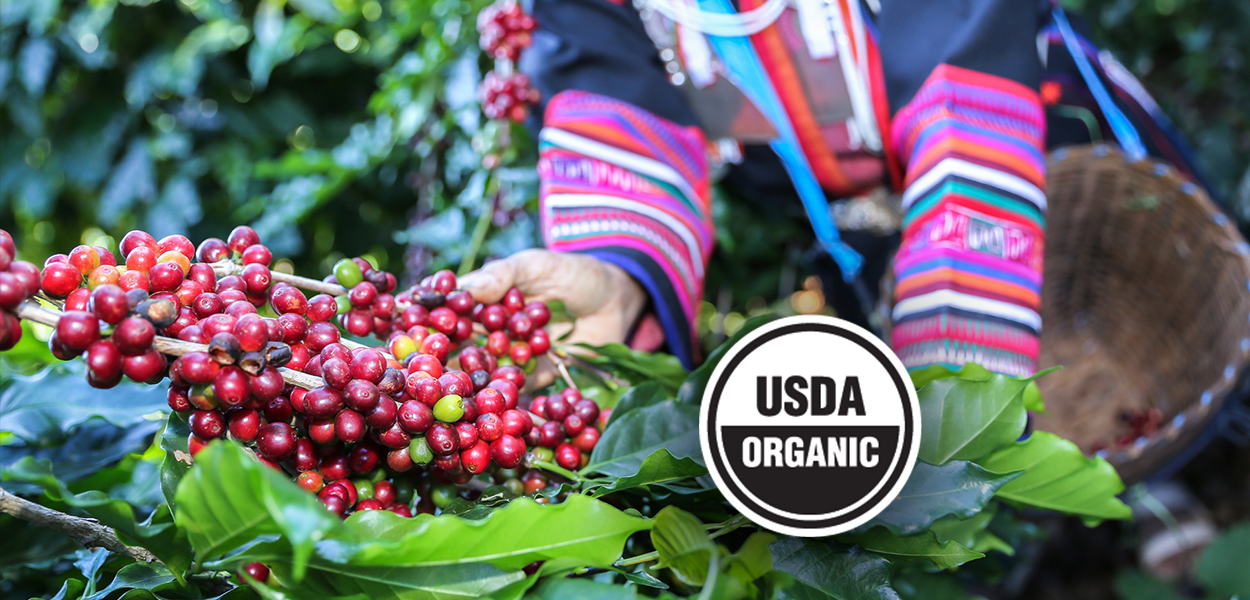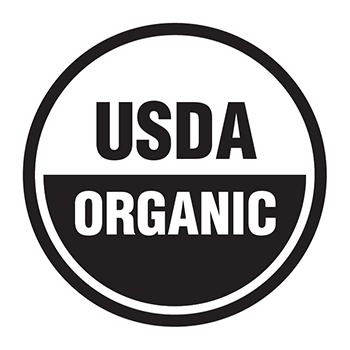Buy your weekday smoothies and get your weekend ones for free. (7 for the price of 5!)

The term organic coffee is everywhere these days. Walk into any grocery store and you will see labels proudly claiming “organic.” But what does that really mean, and is it enough to guarantee you are drinking a truly clean, healthy, and high-quality cup? The truth may surprise you.
What USDA Certified Organic Coffee Really Means
For a coffee to carry the USDA Organic certification, the farm must follow strict guidelines. These include:
- No use of synthetic pesticides or fertilizers for at least three years before harvesting.
- Soil and farming practices must promote biodiversity and sustainability.
- Beans must be handled and processed without prohibited chemicals at every stage.
So when you see a USDA Organic seal, it means the beans came from farms that avoided synthetic chemicals for years before the crop reached production. While this is a strong standard, it does not tell the full story about what is in your cup.
Organic Does Not Always Mean Quality
Just because a bag says organic coffee does not mean you are getting the best beans or the cleanest process. Here are some common pitfalls:
- Low-quality beans: Coffee can be organic but still come from poor-grade beans.
- Private label repackaging: Many companies simply slap their brand name on beans purchased from third parties.
- Blending with cheap fillers: Some coffees are “cut” with lower- cost beans, husks (called milage), or even soybeans.
- Stale coffee: Organic status does not guarantee freshness.
The result is that anybody can be organic and still deliver stale, bitter, or contaminated coffee.
Why Organic Coffee Must Go Beyond the Label
Organic coffee should be more than a certification. To truly be clean and healthy, every step of the journey must align with the essence of purity:
- Farming without pesticides or synthetic chemicals.
- Careful transport and moisture control to prevent mold.
- Storage practices that eliminate contamination risks.
- Roasting methods that preserve antioxidants and reduce harmful compounds.
Without this complete chain of integrity, even organic beans can lose their value before they reach your cup.
Truista Coffee: Organic and Beyond
At Truista Coffee, we believe in taking organic coffee further. Our farm-to- roaster process is unique in several ways:
- Direct farm relationships: We work directly with farmers, removing the middleman and ensuring no private label practices.
- Rigorous lab testing: Every batch is tested and published with a Certificate of Analysis that proves it is mold free and mycotoxin free.
- Acrylamide reduction: We are the first coffee in the world to deliver brewed coffee with undetectable levels of acrylamide, a compound classified as a probable human carcinogen.
- Transparency at every step: Each bag has a QR code linking directly to its lab results so you see the proof yourself.
This means that with Truista Coffee, organic is not just a label. It is a commitment to quality, science, and integrity from seed to cup.
The Future of Organic Coffee
The USDA Organic seal is an important step, but it is not the final word. Coffee should be judged not only by how it was grown, but also by how it was handled, roasted, tested, and delivered.
With Truista Coffee, you can be confident that you are drinking more than just organic coffee. You are experiencing the cleanest bean the world has seen, carefully crafted to eliminate mold, mycotoxins, and acrylamide while preserving maximum flavor and antioxidants.





